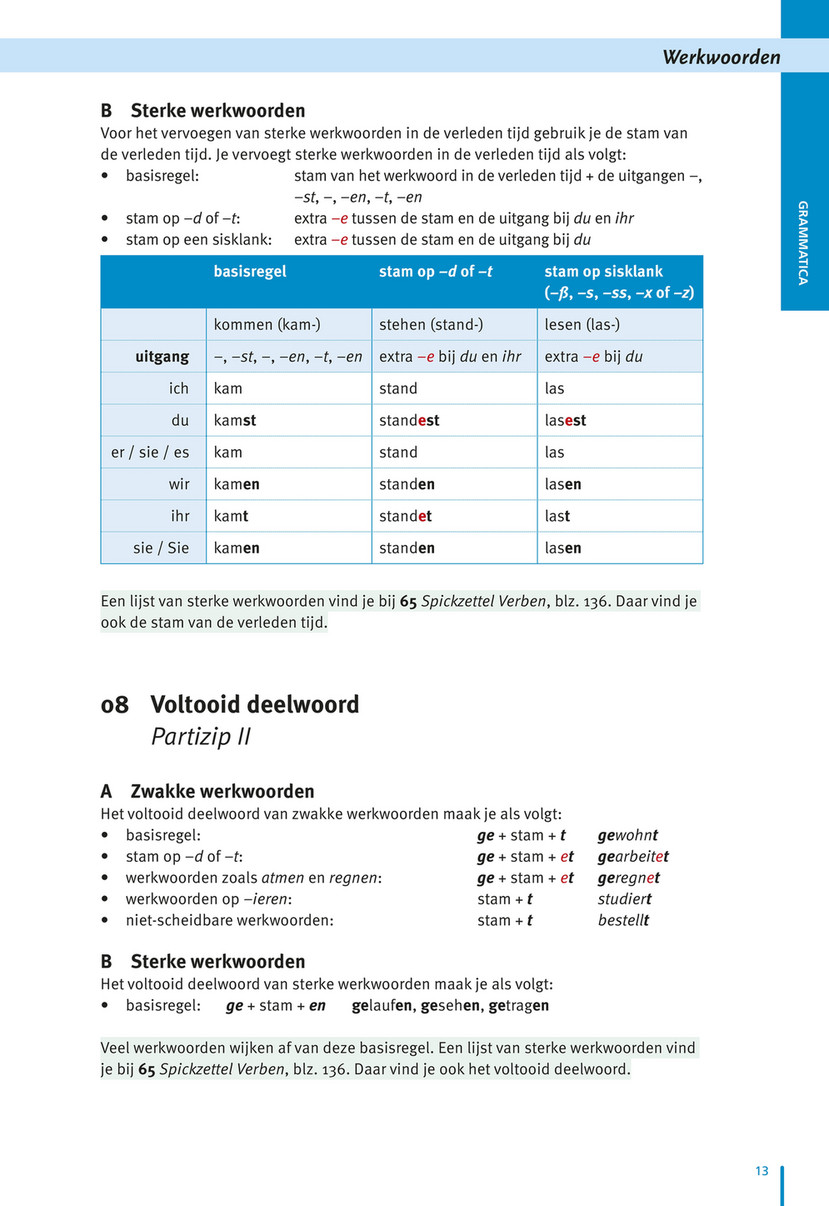Grammar-Quizzes › Adverbials › Adverbs › Adverb Suffixes
Adverbs Adverbs deal with: A predicate: Hij loopt hard.(He walks fast).Wanneer gaat hij weg? (When does he leave?) An adjective: Dat is een erg mooie kanarie (that is a very nice canary). English grammar practice exercise, elementary level. This exercise gives you practise forming questions with who with?, who to?, what at?, what about?, etc.Exercise instructions Write a question ba. Bijvoeglijk naamwoord. Digitaal klaslokaal: Maaike Zijm. Het bijvoeglijk naamwoord geeft een eigenschap of kenmerk van het zelfstandig naamwoord aan. Uitleg adverbs – bijwoorden in het Engels Bijwoorden geven eigenlijk meer informatie over een ander woord. Soms geven ze aan hoe vaak iets gebeurt (bv. Never), waar iemand is (bv. Outside), op welke manier iets gebeurt (bv. Bijvoeglijk naamwoord + ly De meeste adverbs vertrekken van een bijvoeglijk naamwoord en voegen daar -ly. 7 spreekwoorden en uitdrukkingen bevatten `pau` dat gebeurt pas als de paus een geus wordt (=dat gebeurt nooit); hij is in Rome geweest, maar heeft de paus gemist (=hij heeft het belangrijkste laten schieten); hij zal het wel betalen als de paus geus wordt (=hij zal het nooit betalen); is de paus katholiek?(=een antwoord op een vraag waarvan het antwoord overduidelijk `Ja` is).
Express how an action occurs
Adjective vs. Adverb
| ADJECTIVE |
|---|
An adjective modifies a noun with qualities such as size, shape, color, worth, age, origin, and so on. By adding the suffix -ly, the word form may be changed to an adverb (with a few exceptions that differ in form or meaning). |
| MODIFIES A NOUN |
He is an excellenttennis player. |
He is a gracefulathlete. |
He is a smartplayer. |
He is a defensiveplayer. |
He is a professionalathlete. |
He is an expertplayer. |
| ADVERB -LY |
|---|
An adverb provides information about the manner, frequency, degree, or other circumstances of the activity expressed by the verb or verb phrase. A similar meaning can usually be expressed with a prepositional phrase. |
| MODIFIES A VERB |
He plays tennis excellently. (adverb) He plays tennis in an excellent manner. (prep phrase) |
He movesgracefully. He movesin a graceful manner. |
He dresses smartly.(fashionably) He playsin a smart way.(strategic) |
He willplay defensively in tomorrow's game. He willplay in a defensive manner in tomorrow's game. |
He appearsprofessionally at fundraisers. (appear–take part in) He appearsin a professional role at fundraisers. |
He playsexpertly. *He appearsexpertly. (appear–seem) (static verb). |
*Yellow highlighted words are examples of incorrect usage.
An adverb can also modify other word forms: He moves surprisingly quickly (Adv). He is rather young (Adj). He is exactly in the middle (PP). He slept practically the whole day (NP). See Adverb Uses and Adverb Properties.

Related pages: Adverb of Manner–positioning | Adverb–modifying an adjective | Adverb–modifying a preposition.
Other word forms: Word Forms (comparison) | Adjective Suffixes | Noun Suffixes .
Exercise 1
Choose the correct option to complete the sentences below.
Comparative and superlative adjectives
Download full-size image from Pinterest
The comparative form
We use the comparative form of the adjective to compare two things.
- White meat is healthier than red meat.
- Travelling by bus is more comfortable than travelling by train.
less … than
We can also use the form less + adjective + than. Less is the opposite of more.
- Peter is less considerate than Marta. (=Marta is more considerate)
(not) as … as
We can also use the form (not) as + adjective + as.
- Peter isn’t as considerate asMarta. (=Marta is more considerate)
than me / than I am
Bijwoorden & Bijvoeglijk Naamwoordencollege St. Paul
After than or as … as we use an object pronoun (me, you, him, etc.) or a subject pronoun (I, you, he, she, etc.) + auxiliary verb.
- My sister is taller than me.
- My sister is taller than I am.
much/a lot/a bit more…

Before the comparative (more or -er) we can use much, a lot or a bit.
- He’s a bit taller than me.
- Florence is much more interesting than Pisa.
- This car is a lot moreexpensive.
any/no more than
We can use any/no + comparative (any better, no faster, any more expensive, etc.). We use any in negative sentences and no with positive verbs.
- Your performance was no better than mine.
- Your performance wasn’t any better than mine.
Superlative adjectives
We use the superlative form of an adjective or adverb to compare more than two things.
the most … in …
After the superlative we use in + names of places or singular words for groups of people (class, school, team, family, etc.)
- She is the best student in the class.
- He’s the tallest in the family.
- Messi is the best player in the world. (NOT of the class, etc.)
We normally use of + periods of time or a number of people (of the year, of my life, of my brothers, of the students, etc.).
- It was the best evening of my life.
- I am the tallest of my brothers.

the most … I have ever …

We often use the superlative with the present perfect tense and ever.
- This is the best movie I’ve ever watched.
- She is the most beautiful woman I have ever seen.
the/my/Tom’s best …
Before the superlative we always use the, or my/your/his/etc.or Tom’s/Jenny’s/etc.)
- He is the best.
- This is my most expensive jacket.
- This is Paul’s best friend.
the least
The opposite of the most is the least
- He is the least hardworkingstudent in the class.
Comparing actions with adverbs
We can use the comparative or superlative form of adverbs to compare actions.
- She drives fast, but I drive faster.
- He plays well, but I play better than him.
With adverbs ending in –ly, you must always use more to form the comparative, and most to form the superlative
- She speaks more quietly than her boss. (NOT
quietlier) - He cooks well, but more slowly than his workmates. (NOT
slowlier)
For adverbs that that have the same form as adjectives, the comparative and superlative forms are like adjectives: add –er to form the comparative and –est to form the superlative. The most common of these adverbs are: late-later, early-earlier, fast-faster, hard-harder, long-longer.
Wat Zijn Bijwoorden
- He works harder than me.
- She always arrives earlier than her boss.
- It took us longer than usual to arrive because of the traffic.
